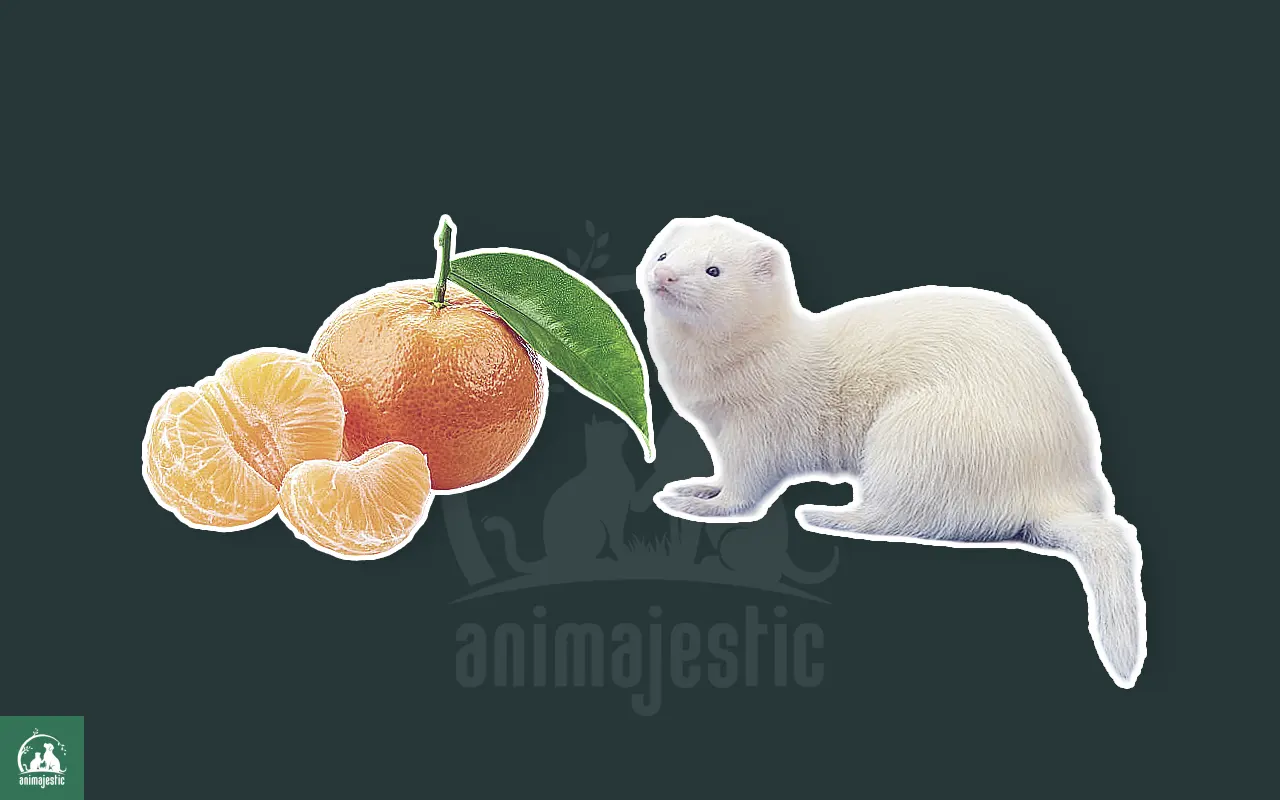As playful creatures, potential pet lovers wonder if ferrets eat mandarins or not. Ferrets are curious and mischievous animals, known for their unique dietary preferences.
When it comes to introducing new foods into a ferret’s diet, caution is key. Mandarins, like many fruits, may seem like a tasty treat for these inquisitive pets, but there are important considerations to keep in mind to ensure their well-being.
In this guide, we’ll explore whether ferrets can safely consume mandarins and the guidelines you should follow to keep your furry friend healthy and happy.
Nutritional Profile of Mandarins
A juicy, ripe mandarin is loaded with nutritional benefits. With an array of essential nutrients, let’s quickly break down what mandarins have to offer:
- Vitamin C
- Fiber
- Antioxidants
- A decent variety of minerals such as potassium and magnesium
- Additional vitamins, including A and B complex
- Trace amounts of iron and calcium
Considering these nutritional elements, it’s understandable why we might wish to share a few slices of these vitamin-rich delights with our ferrets.
However, does these carnivorous pets’ dietary needs align with the mandarins’ composition?
Potential Benefits of Mandarins for Ferrets
Before going further, let’s investigate the possible positive impacts mandarins could have on ferrets.
Vitamins and Minerals
Mandarins are rich in vitamins and minerals, which might contribute to overall body functions’ healthiness. But bear in mind that the dietary requirements of ferrets for these crucial nutrients are considerably different from ours.
Fiber
Fiber contributes to maintaining a healthy digestive system. Ferrets, however, naturally consume a meat-based diet, and excess fiber could pose certain risks—a subject we will examine more thoroughly later.
Antioxidants
Antioxidants, particularly valuable in warding off cellular damage caused by free radicals, could arguably be considered as the most beneficial aspect of mandarins for ferrets.
On the surface, these components might hint that mandarins are an attractive addition to a ferret’s diet.
To understand if this is the case, we need to delve deeper into a ferret’s unique dietary needs and physiological composition.
Potential Risks of Feeding Mandarins to Ferrets
Despite their nutritional appeal, mandarins carry potential hazards that make them less suitable for ferrets.
Here are some critical points we should consider:
High Sugar Content
Mandarins, like most fruits, are high in sugar.
While sugar from natural sources like fruits may seem healthier, consuming too much can lead to obesity and other health problems, even in pets.
Given that ferrets are obligate carnivores, they are not well-equipped to handle a high-sugar diet.
Dietary Incompatibility
The diet of a ferret should predominantly consist of protein and fat from animal sources. The sugar and fiber in fruits like mandarins don’t align well with what their bodies have evolved to handle.
Digestive Issues
Due to their predatory nature, ferrets lack the essential gut bacteria to break down plant matter.
Despite its soft texture, a mandarin’s fiber content can present a challenge to a ferret’s digestive system, potentially leading to discomfort, bloating, or even more severe issues.
Alternatives to Mandarins for Ferrets
While you might want to give your pets a varied diet, with ferrets, their unique dietary needs necessitate a careful selection of food.
If you are looking for treatment alternatives to mandarins for your ferret, consider these:
- Eggs: They are a healthy snack choice packed with high-quality animal protein. You can safely feed your ferret both the yolk and the egg white, cooked or raw.
- Meaty treats: Cooked chicken, turkey, or lamb are excellent sources of animal protein and fat. Remember to ensure the meat is not seasoned or spiced, as certain seasonings can be toxic for ferrets.
So, Can Ferrets Eat Mandarins?
While mandarins are a healthy snack for us, they may not suit our ferret friends’ dietary needs. The high sugar content and the difficulty they could pose to a ferret’s digestive system make them less than ideal for these small carnivores.
With the unique dietary requirements of ferrets and the potential risks of feeding them food intended for an omnivorous or herbivorous diet, it is always better to stick to what suits their physiological needs best.
This, in essence, is a predominantly meat-based diet, high in animal protein and fat.
Finally, when it comes to your pet’s dietary needs, remember to consult with a professional nutritionist. By understanding and respecting the natural dietary needs of ferrets, we can help ensure they lead a healthy and satisfying life.
